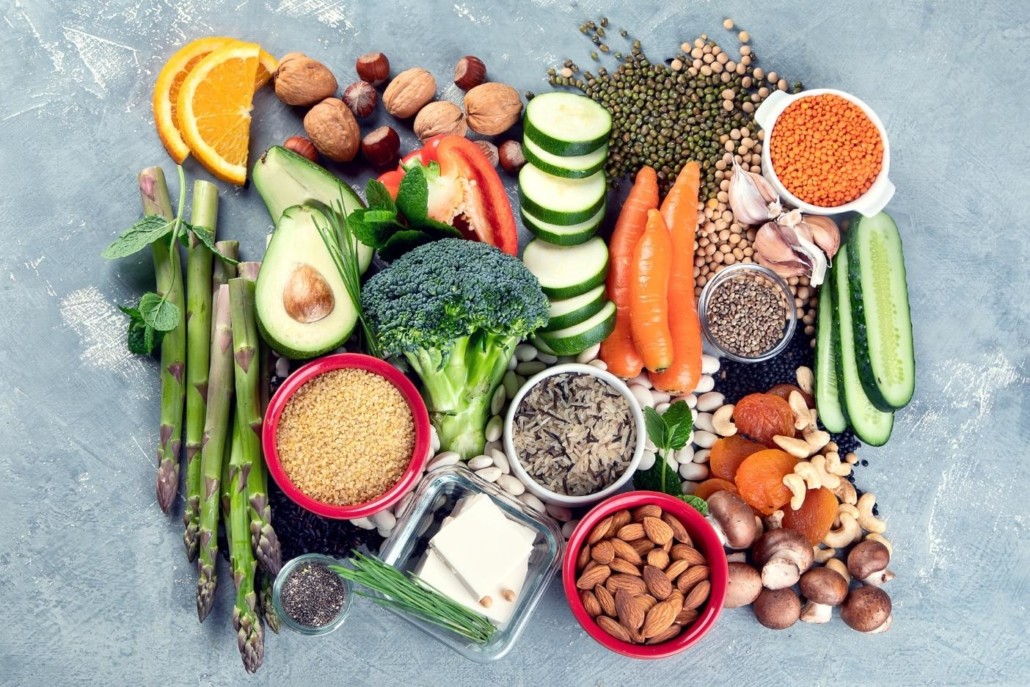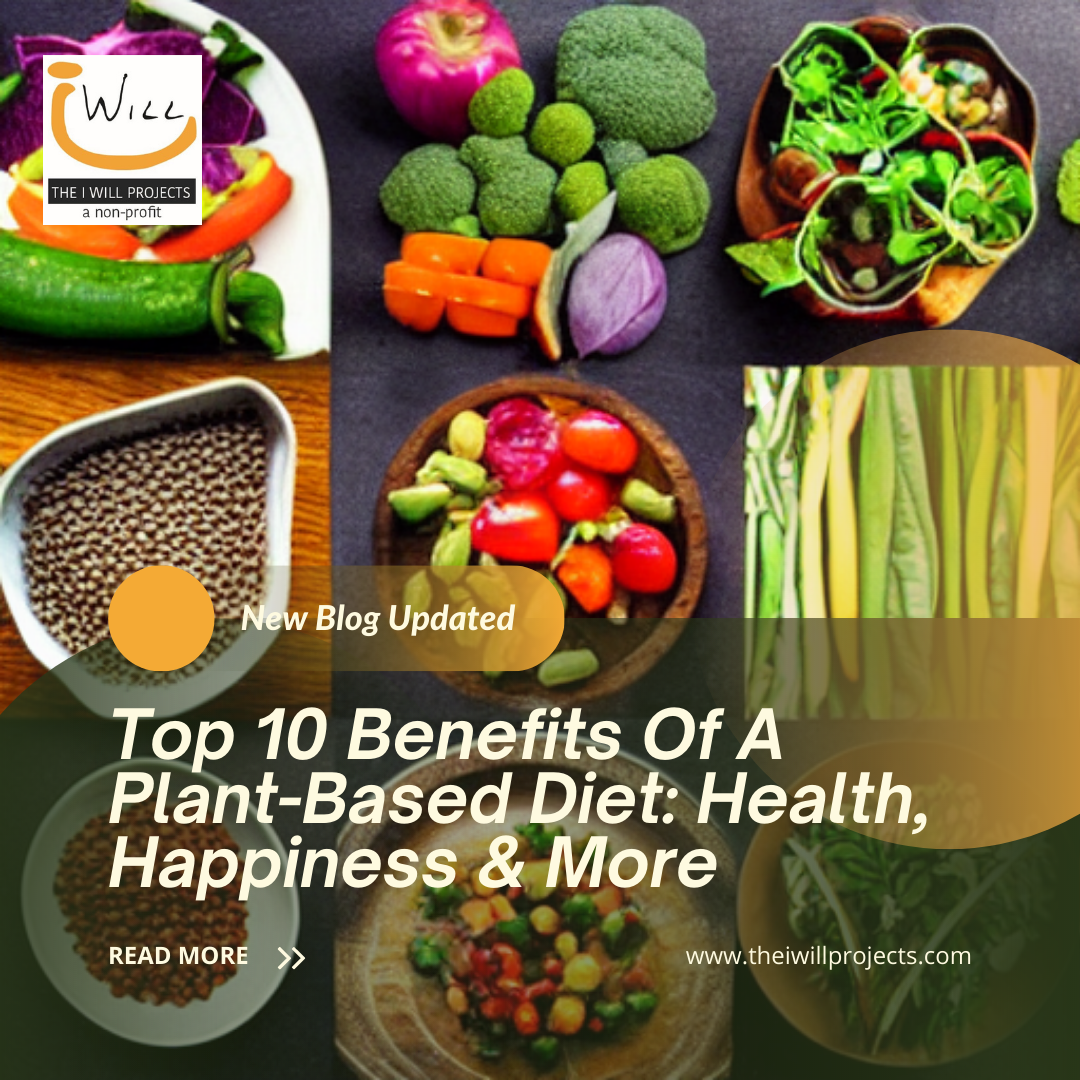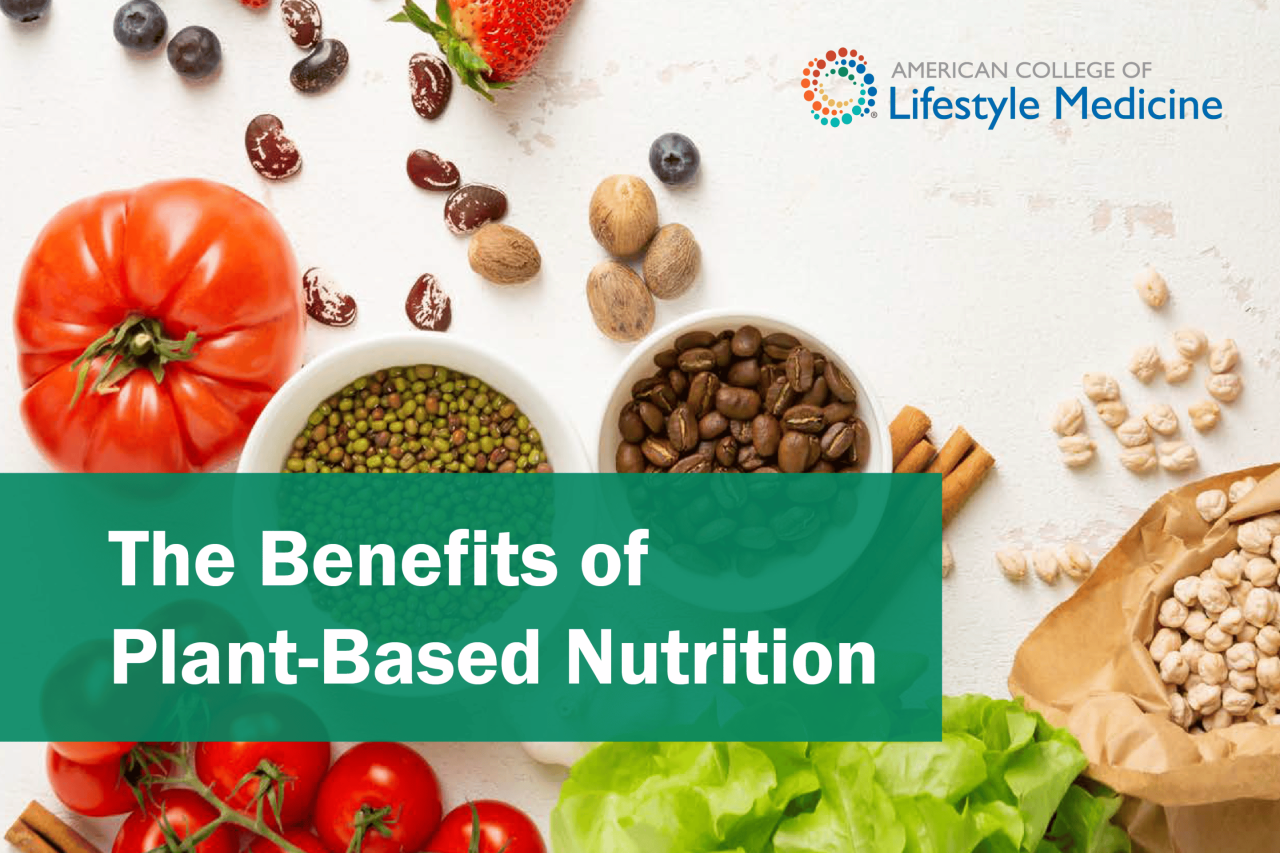Health benefits of a plant-based lifestyle: A Nutritional and Environmental Perspective
Exploring the advantages of embracing a plant-based lifestyle, this piece delves into the nutritional benefits and environmental impact of such dietary choices. As the popularity of plant-based diets continues to rise, it's crucial to understand the positive effects they can have on our health and the planet.
Introduction to Plant-Based Lifestyle
A plant-based lifestyle primarily revolves around consuming whole, minimally processed plant foods while minimizing or completely avoiding animal products.
Plant-based diets focus on fruits, vegetables, grains, legumes, nuts, and seeds as the main components of meals, with an emphasis on nutrient-dense, fiber-rich foods.
Main Principles of a Plant-Based Diet
- Emphasis on fruits and vegetables as the main source of nutrients and antioxidants.
- Inclusion of whole grains, legumes, nuts, and seeds for essential nutrients like protein, fiber, and healthy fats.
- Limiting or avoiding processed foods, added sugars, and unhealthy fats.
- Potential supplementation of Vitamin B12, Vitamin D, and Omega-3 fatty acids for optimal health.
Growing Popularity of Plant-Based Diets
Plant-based diets are gaining popularity due to their potential health benefits, environmental sustainability, and ethical considerations.
Research supporting the positive impacts of plant-based eating on reducing the risk of chronic diseases like heart disease, diabetes, and certain types of cancer has contributed to the rise in popularity.
Celebrities, athletes, and influencers advocating for plant-based lifestyles have also played a role in increasing awareness and adoption of plant-based diets among the general population.
Nutritional Benefits
Eating a plant-based diet can provide a wide range of essential nutrients that are vital for overall health and well-being. Plant-based foods are rich in vitamins, minerals, antioxidants, and fiber, which can help prevent chronic diseases and promote longevity.
Key Nutrients Found in Plant-Based Foods
Plant-based foods are packed with nutrients such as:
- Vitamin C: Found in citrus fruits, strawberries, bell peppers, and leafy greens.
- Vitamin E: Found in nuts, seeds, and leafy greens.
- Iron: Found in legumes, whole grains, nuts, seeds, and leafy greens.
- Calcium: Found in leafy greens, tofu, almonds, and fortified plant-based milk.
- Protein: Found in legumes, tofu, tempeh, nuts, seeds, and whole grains.
Nutritional Value of Plant-Based Foods vs. Animal Products
Plant-based foods are often lower in saturated fat and cholesterol compared to animal products. They also provide more fiber, antioxidants, and phytonutrients which are beneficial for health. Additionally, plant-based diets have been linked to lower rates of heart disease, diabetes, and certain types of cancer.
Plant-Based Sources for Essential Nutrients
- Protein: Legumes (beans, lentils), tofu, tempeh, nuts, seeds, and whole grains like quinoa and buckwheat.
- Iron: Legumes, whole grains, nuts, seeds, dried fruits (like apricots and raisins), and leafy greens (spinach, kale).
- Calcium: Leafy greens (collard greens, bok choy), tofu, almonds, sesame seeds, and fortified plant-based milk (soy, almond, oat).
Health Benefits
Adopting a plant-based lifestyle can offer numerous health benefits that contribute to overall well-being. By focusing on plant foods like fruits, vegetables, whole grains, nuts, and seeds, individuals can experience positive changes in their health outcomes.
Reduced Risk of Chronic Diseases
A plant-based diet has been linked to a lower risk of chronic diseases such as heart disease, type 2 diabetes, and certain types of cancer. Research shows that the abundance of antioxidants, fiber, vitamins, and minerals in plant foods can help protect against these conditions.
Additionally, plant-based diets are typically lower in saturated fats and cholesterol, further reducing the risk of cardiovascular issues.
Impact on Overall Health
Studies have demonstrated the positive impact of plant-based diets on overall health. These diets have been associated with lower blood pressure, improved blood sugar control, and better weight management. The high fiber content of plant foods can also support digestive health and reduce the risk of conditions like constipation and diverticulitis.
Weight Management

A plant-based diet can be beneficial for weight management due to its focus on whole, unprocessed foods that are typically lower in calories and higher in fiber compared to animal-based products.
Incorporating Plant-Based Foods
Here are some tips on incorporating plant-based foods into your diet for better weight control:
- Start by adding more fruits, vegetables, whole grains, legumes, nuts, and seeds to your meals.
- Swap out animal proteins for plant-based proteins such as tofu, tempeh, beans, lentils, and quinoa.
- Aim to fill half your plate with fruits and vegetables at each meal to increase fiber intake and promote satiety.
- Avoid highly processed plant-based foods like vegan desserts and snacks, as they can be high in added sugars and fats.
Impact on Metabolism and Satiety
Plant-based diets have been shown to have a positive impact on metabolism and satiety, which can aid in weight management:
- High fiber content in plant-based foods can help regulate blood sugar levels and keep you feeling full longer, reducing overall calorie intake.
- Plant-based diets are typically lower in saturated fats, which can contribute to weight gain, and higher in unsaturated fats that support heart health.
- Consuming a variety of plant-based foods can provide essential nutrients and antioxidants that support overall health and well-being, contributing to a healthier weight.
Environmental Impact

Plant-based diets not only have numerous health benefits but also play a crucial role in reducing our environmental impact. By choosing a plant-based lifestyle, individuals can contribute to sustainability and combat climate change.
Reducing Carbon Footprint
Plant-based diets have a significantly lower carbon footprint compared to diets rich in animal products. Livestock farming, particularly beef and dairy production, is a major contributor to greenhouse gas emissions. By reducing the demand for animal products and opting for plant-based alternatives, individuals can help lower carbon emissions and lessen the impact of climate change.
Promoting Sustainability
Plant-based diets require fewer natural resources such as water, land, and energy compared to animal agriculture. By choosing plant-based foods, individuals can help conserve resources and promote sustainable agricultural practices. This shift towards plant-based eating can contribute to the long-term sustainability of our food systems and reduce environmental degradation.
Combating Climate Change
The food choices we make have a direct impact on the environment. Plant-based diets not only help reduce greenhouse gas emissions but also support biodiversity conservation and protect natural habitats. By adopting a plant-based lifestyle, individuals can play a vital role in combating climate change and preserving the planet for future generations.
Meal Planning and Recipes

Planning your meals when transitioning to a plant-based lifestyle is essential to ensure you are getting all the necessary nutrients. Here are some tips and easy recipes to help you get started:
Meal Planning Guidance
- Start by making a list of plant-based foods you enjoy and incorporating them into your meals.
- Include a variety of fruits, vegetables, whole grains, legumes, nuts, and seeds to ensure a balanced diet.
- Plan your meals ahead of time to avoid last-minute unhealthy choices.
- Experiment with different plant-based ingredients and cooking methods to keep meals interesting.
Easy Plant-Based Recipes
- Quinoa Salad with Roasted Vegetables: Cook quinoa and mix with roasted vegetables like bell peppers, zucchini, and cherry tomatoes. Drizzle with olive oil and lemon juice for a refreshing meal.
- Chickpea Curry: Sautee onions, garlic, and your favorite curry spices. Add chickpeas, coconut milk, and spinach. Serve over brown rice for a hearty and flavorful dish.
- Veggie Stir-Fry: Stir-fry mixed vegetables like broccoli, carrots, and snap peas with tofu or tempeh. Add a soy sauce and ginger sauce for a quick and nutritious meal.
Tips for Transitioning Smoothly
- Start by incorporating more plant-based meals gradually into your diet to allow your taste buds to adjust.
- Focus on the foods you can eat rather than what you need to eliminate, making the transition more positive.
- Seek out plant-based alternatives for your favorite non-vegan dishes to make the switch easier.
- Connect with online communities or local groups for support, recipe ideas, and motivation during your transition.
Concluding Remarks
In conclusion, transitioning to a plant-based diet not only offers numerous health benefits but also plays a significant role in reducing our environmental footprint. By making conscious choices about what we eat, we can contribute to a healthier future for both ourselves and the planet.
FAQs
Can you get enough protein from a plant-based diet?
Yes, you can get more than enough protein from plant-based sources like legumes, tofu, tempeh, nuts, and seeds.
Are plant-based diets suitable for all age groups?
Plant-based diets can be suitable for people of all ages, as long as they are well-planned to meet individual nutritional needs.
How can a plant-based diet help the environment?
Plant-based diets require fewer resources like water and land, making them more sustainable and environmentally friendly compared to animal-based diets.




